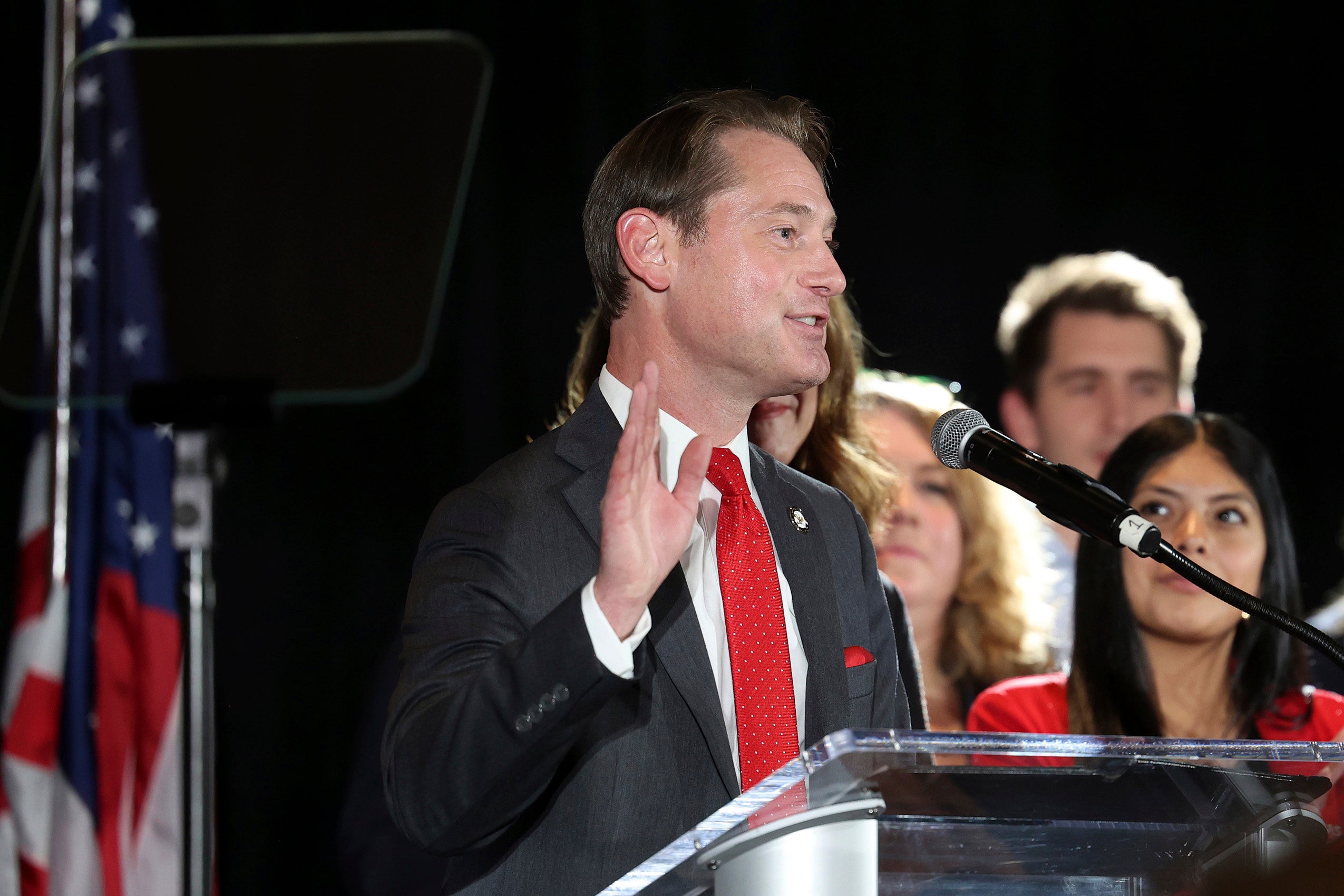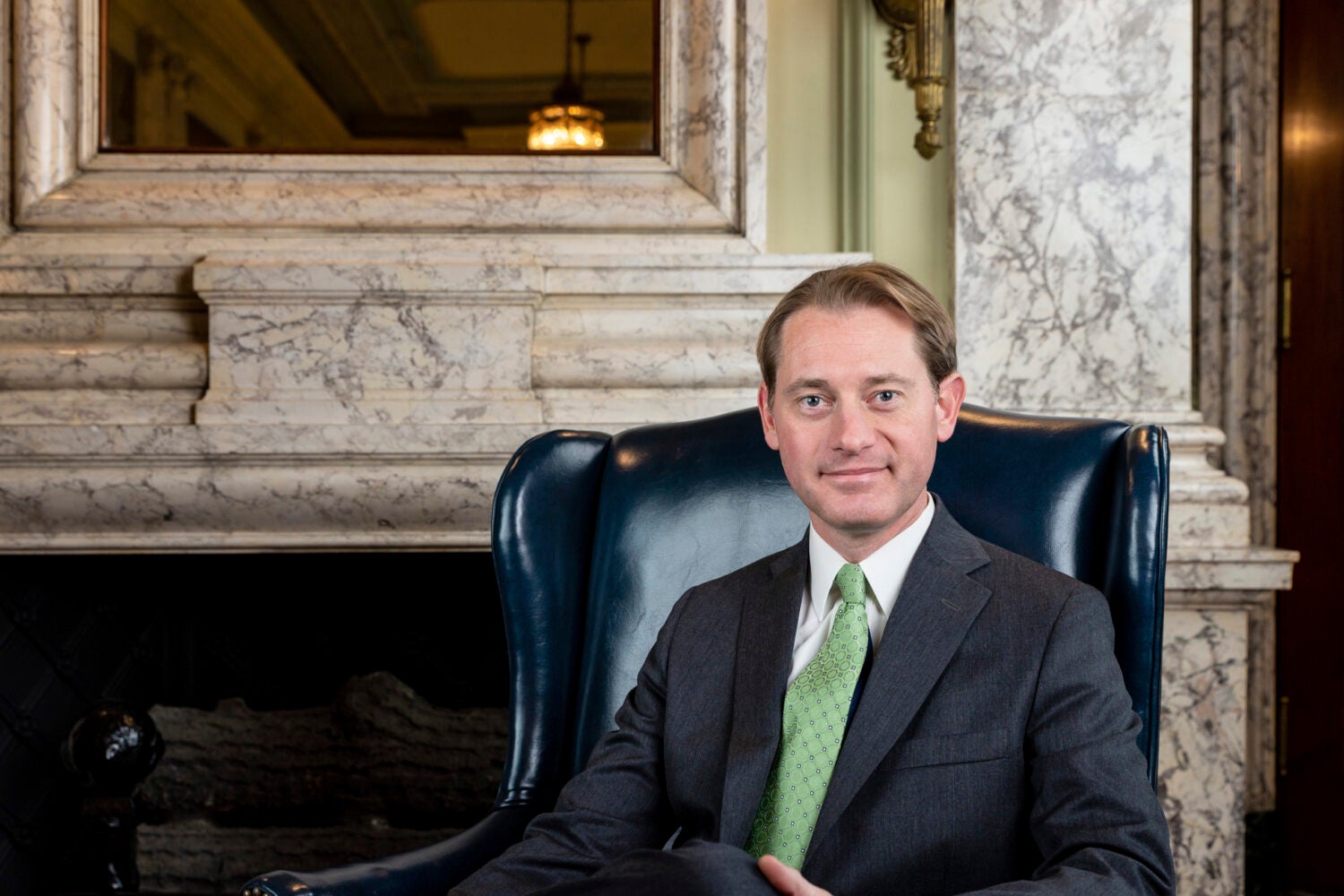By the time he decided to run for secretary of state in his native Kentucky, Michael Adams ’01 had spent much of his career as an election lawyer, and he was as ready as any first-time candidate could be to take on the job. Then he was elected.
“The biggest thing I learned is how much different it is when you’re the candidate and it’s your name on the ballot,” said Adams. “I worked for literally 400 candidates professionally before I ever ran myself. And people [said], ‘You must have been really well prepared.’ No, there’s nothing that prepares you for this.”
“This,” as it turned out, was more than anyone could have anticipated for a candidate who took office in January 2020 as Kentucky’s chief election official. The pandemic hit shortly thereafter, and Adams, a Republican, worked with Democratic Gov. Andy Beshear to make voting by absentee ballot easier. He also added early voting days as a way to help people safely vote, which they did in record numbers. He was called a traitor and worse for his bipartisan efforts, which led him to be named the 2024 John F. Kennedy Profile in Courage Award winner “for expanding voting rights and standing up for free and fair elections despite party opposition and death threats from election deniers.”
“I’ve certainly tried to be fair, and to be above partisanship and to work with both sides, and I think it makes a big difference,” Adams said. “There are plenty of issues that we fight about all the time. But elections are too important. And they can’t be politicized.”
“There are plenty of issues that we fight about … but elections are too important.”
Adams has forcefully denied the assertion that widespread election fraud exists and has rebutted misinformation that he said is often driven by social media or cable news: “They don’t know any better, but that hasn’t stopped them from yelling at public officials.” He also faced accusations of voter suppression from progressives for instituting a photo ID requirement to vote, but he insists that safeguards such as offering free photo IDs have bolstered the security of elections without disenfranchising voters. Since winning re-election last year, he has worked to maintain the gains from his first term, including fighting efforts from members of his party to take away early voting.
He credits his Harvard Law experience with helping him communicate and solve problems across party lines. After growing up in Kentucky, where he attended college, Adams acknowledges feeling some culture shock when he arrived in Cambridge. But the opportunity to interact with people from different backgrounds benefited him, he says. He appreciated learning from professors whose politics he does not share, such as Elizabeth Warren, Elena Kagan ’86, and Laurence Tribe ’66, who wrote a note to Adams commending his classwork after he didn’t do as well as he had hoped he would on an exam. He still has that note in his desk at the State Capitol.
“I had some pretty significant people … who really shaped my intellect, but also they taught me empathy,” he said, adding that he believes it was good for him as a conservative to go to Harvard and meet so many people who differed from him. “I think it’s made me more effective in the job I have.”

After graduation and a judicial clerkship, Adams worked for a law firm while volunteering for campaigns. When campaign officials found out he was a lawyer, they asked him to help with legal matters such as vetting campaign finance reports. The experiences helped propel him to a full-time practice in election law, starting as general counsel to the Republican Governors Association and later representing national political committees and politicians including former Vice President Mike Pence and former South Carolina Gov. Nikki Haley. His career opportunities also were enhanced, Adams says, by the Supreme Court’s 2010 decision in Citizens United v. FEC, which spurred the need to hire lawyers to navigate the new campaign financing rules.
Adams developed an interest in politics at a young age. His parents restricted his TV viewing options, but he was allowed to watch C-SPAN, and he became the rare preteen captivated by the Iran-Contra hearings and other congressional matters. By contrast, his interest in law came about, literally, by accident. His parents, who struggled financially, wanted him to be the first in the family to graduate from college so he could have an easier life than theirs. But he did not have any lawyers in his orbit, and couldn’t have imagined becoming one himself. Then, shortly before graduating from high school, he got into a car accident. When the insurance companies couldn’t determine who was at fault, a lawsuit ensued.
It was “one of the best things that ever happened to me,” Adams said. “I was able to for a couple of years go through the process of litigation, go through the complaint and the answer, and the written discovery and the oral discovery and the trial prep. And I thought it was just fascinating.” He asked his attorney, “Do you think I could do this?” His attorney advised him to take the LSAT and find out.
After the rigors of his first term and re-election campaign, Adams would like to spend more time with his wife, Christina, and daughter, Lucia, who voted for the first time recently, although she hadn’t been old enough to vote for her father when he ran in 2023. He can’t run for a third consecutive term as secretary of state because of Kentucky law. But Adams, who says that state government fits his style more than more polarized national politics, is considering a run for governor. Lucia may yet have the chance to cast a vote when her father’s name is on the ballot.
